Aridity and comedy are not words you expect to read, or write, in the same sentence. Yet they capture some of the many attractions of Radu Mihaileanu’s new film The Source. The director came to considerable public attention two years ago with his Russian-themed burlesque The Concert. This time he has journeyed to the Arab world, and the results are considerably deeper, and more emotionally engaging.
Based loosely somewhere in North Africa, it was filmed in the stunning visual locations of Morocco, and feels just right for that country (arid locations aplenty); the language is the Moroccan dialect Darija. Life in the small mountain village where it’s set is tough indeed – the men do very little except drink tea and chat, the women do very much, including climbing the steep paths to bring water from the only spring in the area, the “source” of the film’s title.
There’s plenty of tragi-comedy in the best bard tradition in the story
When a slip on that demanding path induces a miscarriage – not for the first time - something snaps for heroine Leila (the marvellous Leila Bekhti). She’s somewhat the outsider in the village, coming from another area, and unusual for the fact that she is in a love match with her husband, the village’s teacher Sami (Saleh Bakri, no less good), while the rest of the women in the village (brilliant ensemble playing) are little more than objects of reproduction for their lazy husbands.
Leila’s idea for a “love strike” – where all the women deny their husbands conjugal rights until they install a water pipe down to the village itself – initially doesn’t go down well. But her main supporter is the feisty “Mother Rifle” (even better in French, le vieux fusil). She’s played by Biyouna (pictured below right), better known from North Africa’s music world, who simply steals the show here for her portrayal of a widower: now that her husband has gone, she has a level of freedom the other women don’t, and has become something of the local wise woman, and a healer as well.
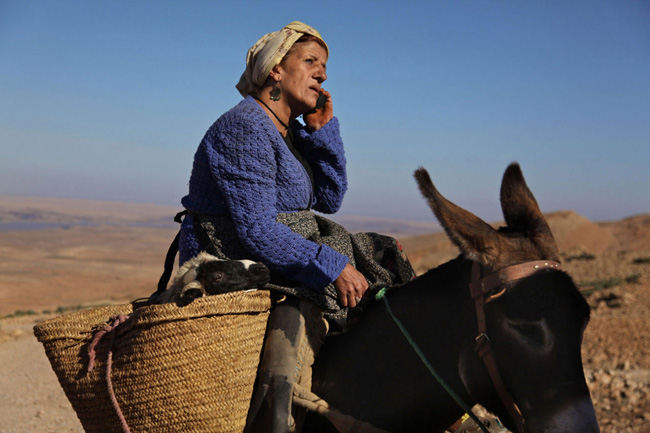 Her monologues are simply Shakespearean in their power, and there’s plenty of tragi-comedy in the best bard tradition in the story. Clearly lurking in the background, too, is Aristophanes and his Lysistrata. Apparently there was a real-life precedent in Turkey a few years ago as well.
Her monologues are simply Shakespearean in their power, and there’s plenty of tragi-comedy in the best bard tradition in the story. Clearly lurking in the background, too, is Aristophanes and his Lysistrata. Apparently there was a real-life precedent in Turkey a few years ago as well.
Far too many subplots abound to even try to explain them here – but they don’t feel contrived. At two hours the film feels short (always a good feeling to have when you leave a cinema), and it’s not unlike the Latin American soap operas that the women, when they have the rare chance to see a television, love.
Mihaileanu has a rare ability to work with actors in a foreign tongue, achieving a result that is totally convincing (it is a rare ability, Russia’s Alexander Sokurov also comes to mind). The risk in such projects is that the foreigner director, especially in any post-colonial context, becomes little more than a cinematic tourist: revealing here that one scene does have a group of foreign walking tourists dropping by for the ethnic song and dance performances that are the village’s chief source of income.
Mihaileanu avoids that completely, and the film’s lensing by Glynn Speeckaert, while revelling in the landscapes, shoots them with a kind of bleached colour that reflects the local heat, and largely in steadicam to boot. Merchant and Ivory it is not. Full kudos too for a musical score that blends local sounds with elements of more melancholic European cellos and the like.
It also speaks volumes about the clash between tradition and modernity in such communities – as well as the water, the women also want education and simply more respect (plenty of resonance post-Arab Spring). The villagers have mobile phone coverage, albeit limited (one hilarious scene from Biyouna), even if no electricity – so they spend the evenings with battery torch lights strapped to their heads: such details really count. Its depiction of Islam, too, is sympathetic – the local imam is implicitly converted to the women’s cause when Leila argues it to him on quotes from the Koran.
Mihaileanu has taken one crucial step on from The Concert, towards empathy. In his previous film we were laughing at the characters; here we are laughing with them. Pretty much all human life is here. The result is, simply, a heart-stealer.
Watch the trailer for The Source

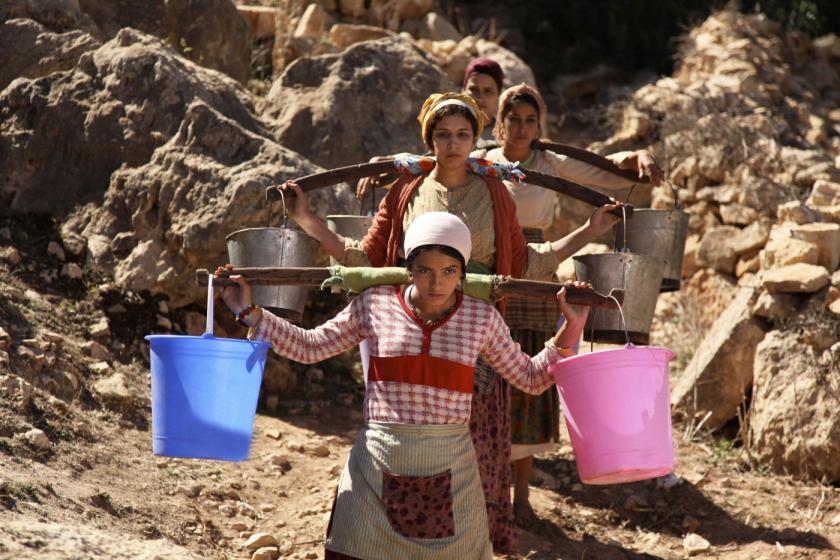

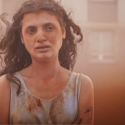





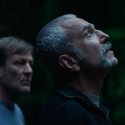




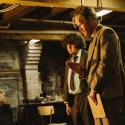
Add comment